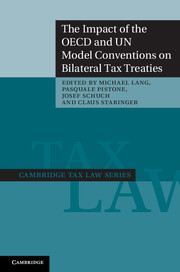Book contents
- Frontmatter
- Contents
- Contributors
- Preface
- Table of cases
- Table of statutes
- General report
- 1 Argentina
- 2 Australia
- 3 Austria
- 4 Belgium
- 5 Brazil
- 6 Canada
- 7 Chile
- 8 China
- 9 Colombia
- 10 Croatia
- 11 The Czech Republic
- 12 Estonia
- 13 Finland
- 14 France
- 15 Germany
- 16 Hong Kong
- 17 Hungary
- 18 India
- 19 Italy
- 20 Lebanon
- 21 Liechtenstein
- 22 The Netherlands
- 23 New Zealand
- 24 Norway
- 25 Peru
- 26 Poland
- 27 Portugal
- 28 Romania
- 29 The Russian Federation
- 30 Serbia
- 31 Slovakia
- 32 Slovenia
- 33 Spain
- 34 Sweden
- 35 Uganda
- 36 The UK
- 37 The USA
- Index
- References
7 - Chile
Published online by Cambridge University Press: 05 November 2014
- Frontmatter
- Contents
- Contributors
- Preface
- Table of cases
- Table of statutes
- General report
- 1 Argentina
- 2 Australia
- 3 Austria
- 4 Belgium
- 5 Brazil
- 6 Canada
- 7 Chile
- 8 China
- 9 Colombia
- 10 Croatia
- 11 The Czech Republic
- 12 Estonia
- 13 Finland
- 14 France
- 15 Germany
- 16 Hong Kong
- 17 Hungary
- 18 India
- 19 Italy
- 20 Lebanon
- 21 Liechtenstein
- 22 The Netherlands
- 23 New Zealand
- 24 Norway
- 25 Peru
- 26 Poland
- 27 Portugal
- 28 Romania
- 29 The Russian Federation
- 30 Serbia
- 31 Slovakia
- 32 Slovenia
- 33 Spain
- 34 Sweden
- 35 Uganda
- 36 The UK
- 37 The USA
- Index
- References
Summary
The relevance of the OECD and UN Model Conventions and their Commentaries for the interpretation of Chilean tax treaties
Introduction
Chile has twenty-four tax treaties currently in force and another three treaties already concluded awaiting parliamentary ratification. Furthermore, it is now negotiating several tax treaties.
Chile's experience as a tax treaty partner is relatively recent. Its first tax treaty was signed with Argentina in 1976 and entered into force in 1986. This treaty follows the Andean Pact Model (1971). As of 1999, Chile became more active in negotiating and concluding tax treaties mainly based on the OECD Model Tax Convention on Income and on Capital (OECD Model) and the United Nations Model Double Taxation Convention between Developed and Developing Countries (UN Model) with some differences derived from Chile's particular tax system.
The policy that Chile has followed in its tax treaty negotiations after signing its treaty with Argentina has been very consistent. Such policy has not been modified by the recent accession of Chile to the OECD, with the exception of the introduction of the new standard on the exchange of information which has been agreed in the recent treaties signed with Australia and the USA.
- Type
- Chapter
- Information
- Publisher: Cambridge University PressPrint publication year: 2012



